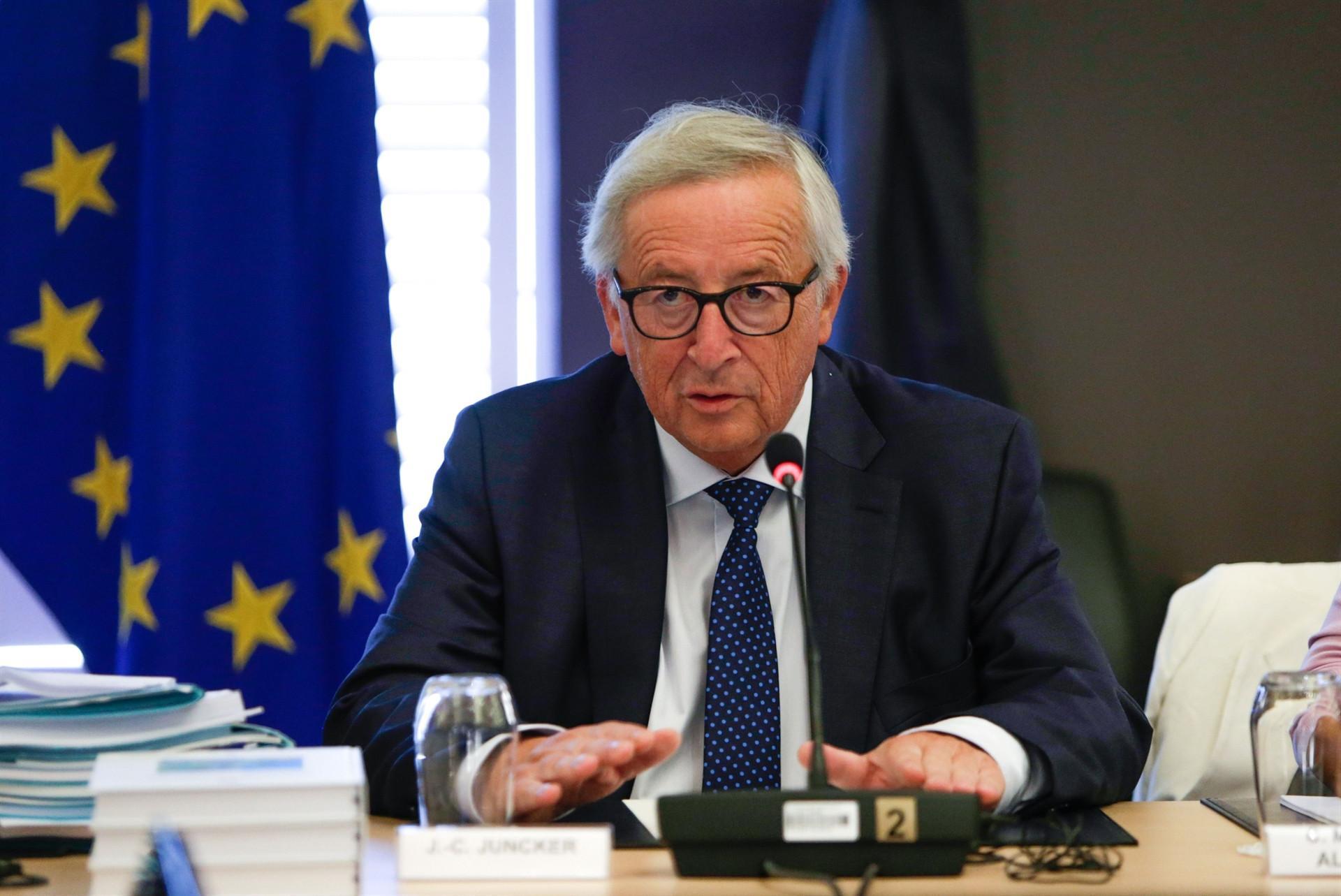EU ready to retaliate if US imposes car tariffs: Juncker
FRANKFURT/WASHINGTON

European Commission chief Jean-Claude Juncker warned on Aug. 31 the EU would hit back with tariffs of its own if Donald Trump made good on threats to slap duties on foreign cars, as an EU-U.S. trade truce wobbled.
“We agreed with Trump on a kind of ceasefire when it comes to new car tariffs,” Juncker told German broadcaster ZDF, as quoted by AFP.
“As is the case with ceasefires, sometimes they come under threat but they are still respected.”
But if the U.S. president were to violate that agreement and impose tariffs on car imports from the European Union, Juncker said, “then we will do the same.”
The comments came a day after Trump reportedly rejected an EU proposal to scrap tariffs on automobiles, reawakening a transatlantic trade spat.
EU Trade Commissioner Cecilia Malmstroem had said the bloc was “willing to bring down... our car tariffs to zero” provided that Washington did the same.
But in an interview with Bloomberg News on Aug. 30, Trump said the proposal was “not good enough.”
“Their consumer habits are to buy their cars, not to buy our cars.”
He also compared the EU to China, which is locked in a festering trade war with the U.S.
“The European Union is almost as bad as China, just smaller,” Trump told Bloomberg.
Trump and Juncker met at the White House in July to defuse a brewing tit-for-tat trade confrontation sparked by U.S. tariffs on EU metals imports.
The pair pledged to hold off from imposing new tariffs and to work towards a limited trade accord that would eliminate customs duties.
Trump has in the past threatened taxes of up to 25 percent on EU cars.
German car giants like Volkswagen and BMW would be among those hardest hit if the tariffs were imposed.
NAFTA talks
Meawnhile, top NAFTA negotiators from Canada and the United States wrapped up a third day of two-way talks on Aug. 30, agreeing to meet the next day to resolve final differences before a deadline, with Mexican counterparts on standby to rejoin negotiations.
Despite some contentious issues still on the table, the increasingly positive tone contrasted with Trump’s harsh criticism of Canada in recent weeks, raising hopes the year-long talks to revamp the North American Free Trade Agreement (NAFTA) will conclude soon with a trilateral deal.
“Canada’s going to make a deal at some point. It may be by Friday or it may be within a period of time,” U.S. President Donald Trump told Bloomberg Television, as quoted by Reuters.
“I think we’re close to a deal.”
Negotiations entered a crucial phase this week after the United States and Mexico announced a two-way deal on Aug. 27, setting auto content rules and paving the way for Canada to rejoin talks to modernize the 1994 accord that underpins annual trade of more than $1 trillion.
Three-way talks were already underway at the technical level and Mexican Economy Minister Ildefonso Guajardo was expected to soon rejoin talks with U.S. Trade Representative Robert Lighthizer and Canadian Foreign Minister Chrystia Freeland, people familiar with the process said.
There was no deal yet, said Freeland, who briefed reporters at the end of Aug. 30 talks.
“I had a brief conversation with Ambassador Lighthizer and his team. I had a couple of things to say and we’ll reconvene in the morning.”
Earlier Freeland said she had a “long, intensive conversation” with Lighthizer.
“We covered a lot of ground,” she added.
“The atmosphere remains constructive. There’s a lot of goodwill.”
















